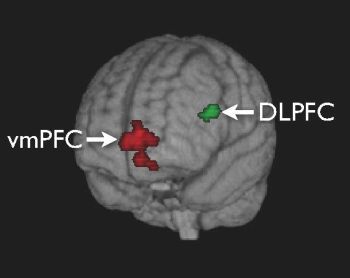They're right. About the Super Bowl anyway.
Developing a little willpower does have some neuroscience benefits. The willpower that goes into fasting - be it Lent, Ramadan or just because you like to do it, leads to greater neuron density in the prefrontal cortex. Yes, that's right, you can write a book claiming religious people have better brains than atheists using no more of a foundation than that - you can be sure someone is out there writing a book claiming just the opposite and invoking evolution to do it. Jill Greenberg in TIME cleverly calls that neuroscience war "the battle between your noble lobes and your ignoble ones" but the message from science - well, the scientists who are not in an anti-religious culture war - says that all willpower training is good training. Willpower is your friend, even if it comes from a religious teaching.
Jeffrey Kluger interviewed Roy Baumeister, a psychologist and book author on willpower at Florida State University, who said an experiment on willpower showed that people given even a meaningless task, like opening a door with their 'weak' hand for two weeks, performed better on willpower tests after that time.
A Caltech study measured the differences the brain activity of people with self-control as compared to the non-self-controllers:

3-D projection of a transparent brain shows the regions of activation: the ventral medial prefrontal cortex (vmPFC) is in red, and the dorsolateral prefrontal cortex (DLPFC) is in green. Activity in the vmPFC reflects the value assigned to foods during decision-making. When self-control is exercised, DLPFC activity increases and appears to interact with the activity in the vmPFC to increase the influence of health considerations.Credit: Caltech/Todd Hare
They determined that value-based decisions, like what kind of food to eat, are reflected in the ventromedial prefrontal cortex, or vmPFC. When activity goes down, the likelihood of 'saying no' goes up. That's good knowledge. I thought I had some special gene that made me eat a whole bag of Doritos if I have just one but maybe I just need to bulk up my noggin.
Next step; exercises for the brain. But until then, religious people can get better brains by fasting and secular people can abstain from buying organic onions or 14 Other Organic Foods That Are An Even Bigger Scam Than Most Organic Foods.





Comments